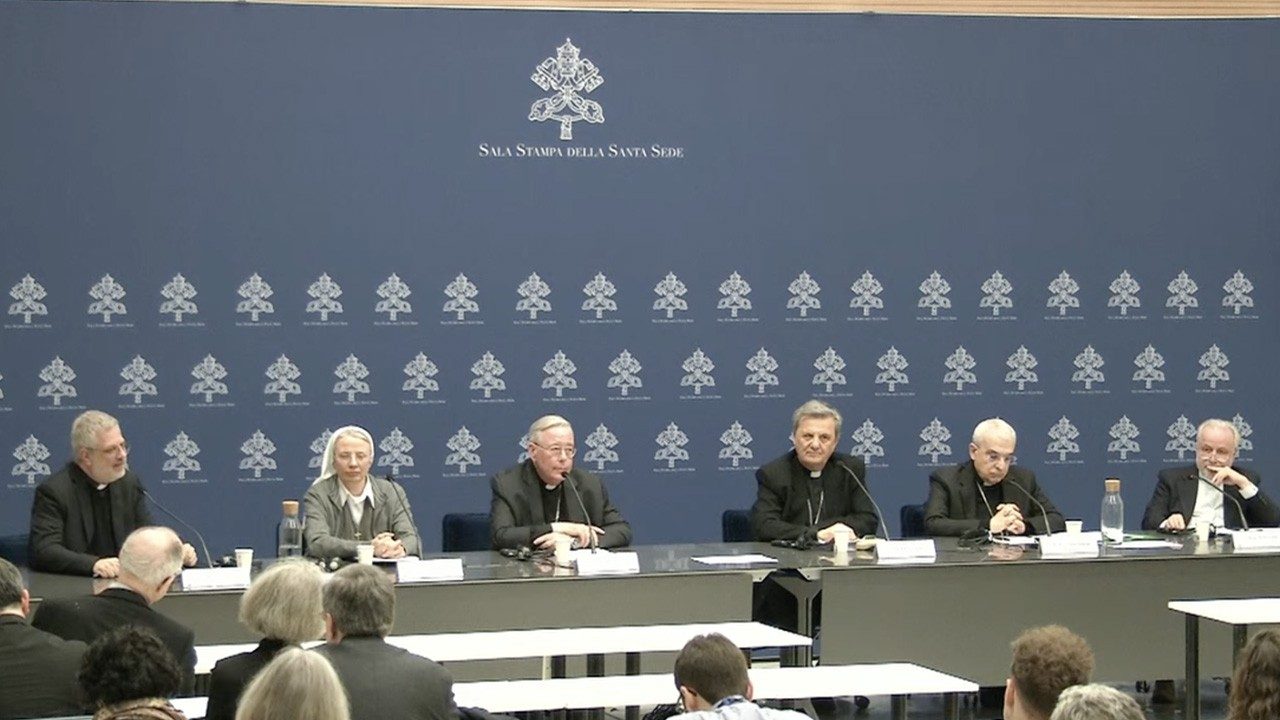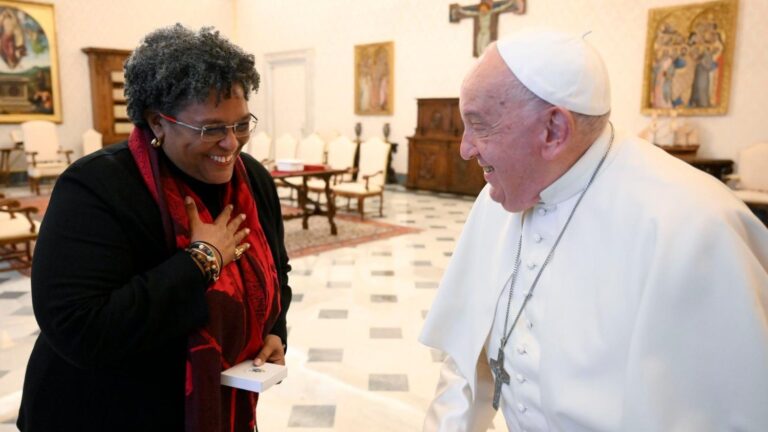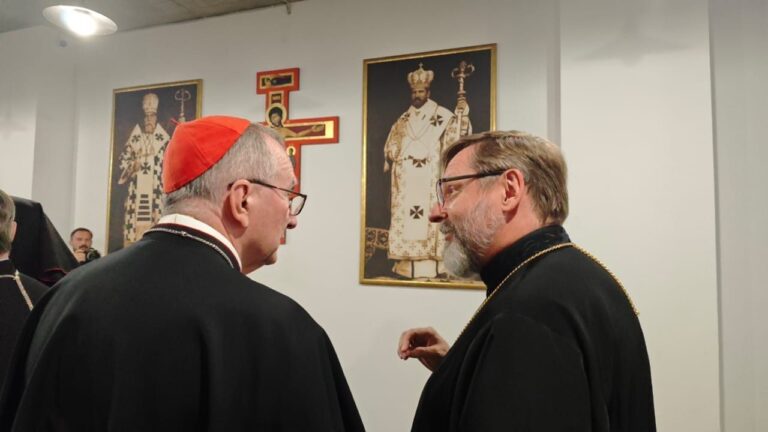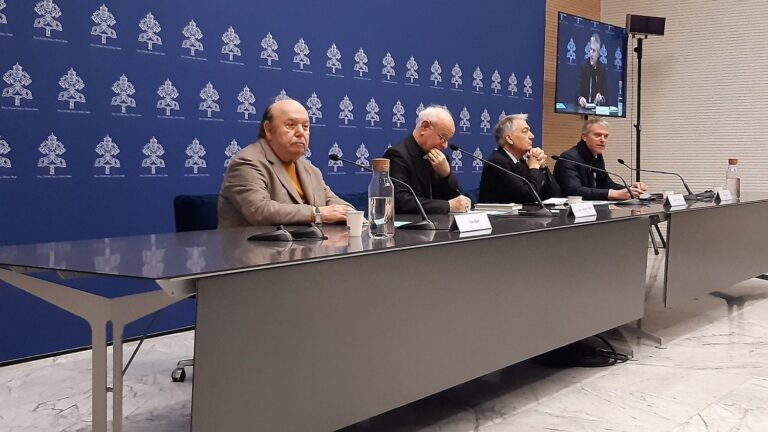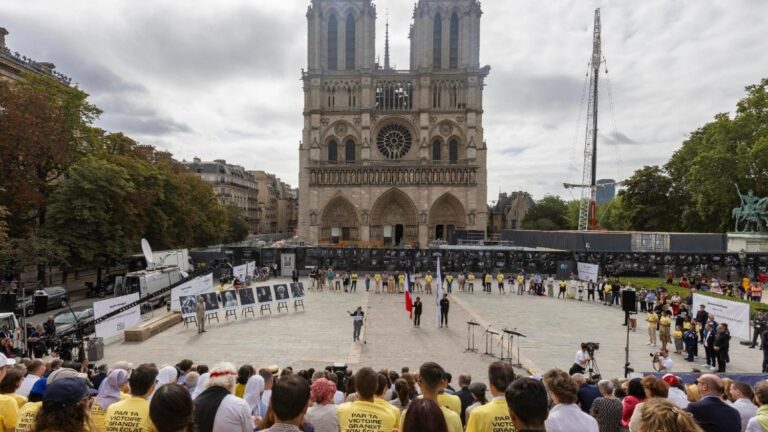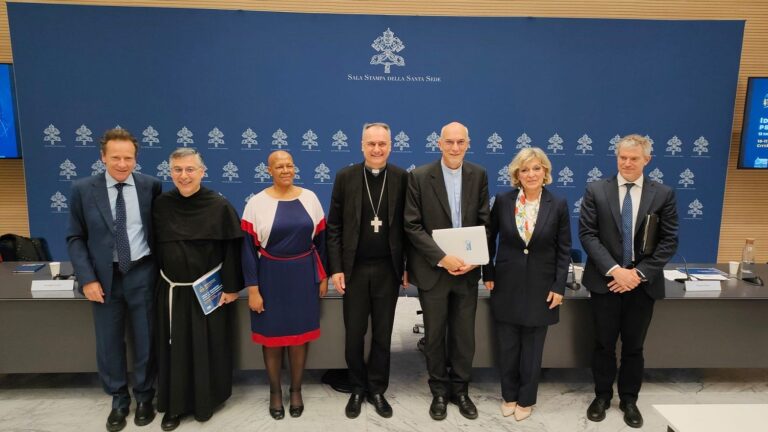Synod ‘not ecclesiastical politics’, results ‘already visible’
The Holy See Press Office is organizing a briefing to present two documents that will help the Church prepare for the second session of the Synodal General Assembly in October.
By Salvatore Cernuzio
The Synod does not aim to engage in “ecclesiastical politics”, nor to put on the table controversial issues such as priestly celibacy or the blessing of homosexual couples in light of the doctrinal document. Fiducia Supplicantsbut rather in the service of a process – the synodal process – initiated and carried by the people of God and responding to their requests, their concerns and their needs.
Cardinal Jean-Claude Hollerich, general rapporteur of the Synod, clarified this point during a press conference at the Holy See Press Office on Thursday. He reiterated the intentions of the journey started “from below” in 2021, which continues and will end with the second session of the XVI Ordinary General Assembly of the Synod, scheduled at the Vatican from October 2 to 27, 2024.
He was joined by Cardinal Mario Grech, general secretary of the Synod Secretariat, to present two documents: one entitled “How to be a synodal Church in mission? Five perspectives to deepen theologically in view of the second session”, while the second is “Study groups on the issues raised during the first session of the XVI Ordinary General Assembly of the Synod of Bishops to be further explored in collaboration with the Dicasteries of the Roman Curia.”
Two documents represent the visible “fruits” of the Synod, underlined Cardinal Grech.
Brought to you by the people of God
Focusing on the themes, Cardinal Hollerich clarified how their selection and division are the direct result of what emerged in the final summary report of the first session and, in turn, the result of the discussions among the participants at the assembly, themselves the result of the involvement of local churches from five continents.
This is what the work of the ten Groups wants to reflect: something that advances and which “does not stop at the Synod on synodality”, as the theologian Mgr. Piero Coda, secretary general of the International Theological Commission: “There will certainly be significant repercussions on the continuation of the assembly itself.”
“We are the servants of the synodal process,” underlined Cardinal Hollerich. This does not mean that “we deal with all the points that arise from the discussion of the Synod, but only those presented by the people of God. We do not engage in ecclesiastical politics; we are the servants of this synodal process. content, but the content of the people of God. »
Priestly celibacy is never put on the table
Cardinal Grech said the issue of married priests “has never been put on the table,” nor will it be discussed in the working group responsible for relations with Eastern Churches that have married priests . Likewise, he added, the blessing of homosexual couples, as proposed by Fiducia Supplicants document of the Dicastery for the Doctrine of the Faith, or a subject for discussion.
Not because these are uninteresting subjects, he declared, quite the contrary: “Fiducia Supplicants is an important document; I find this very beautiful because it means that God loves everyone, even those who find themselves in irregular situations”, underlined Cardinal Hollerich. But it is “a pastoral and not a doctrinal document. It is an initiative that helps me in my pastoral context, but it has already been addressed by the Dicastery for the Doctrine of the Faith and with the authority of the Pope and it is not a matter to return to the Synod.
Women Deacons Theme
However, other questions will be the focus of the work of the study groups charged with exploring theological and canonical questions regarding specific ministerial forms, notably the ordination of women as deacons, which emerged at the Synodal Assembly of October 2023.
“It is a question of agreeing on this requirement through a study, taking into account the results of the two commissions that Pope Francis created,” Mgr Coda further clarified. A work in progress, as is the theme of the selection of episcopal candidates (also a subject examined by another study group): “It is an open table, where listening is the fundamental dimension.”
Meeting of priests from the world at the Vatican
Cardinal Grech highlighted the importance of listening as one of the most obvious results of the synodal path.
“The fruits that we are already seeing confirm that the Holy Spirit is present and active in the Church today,” he said, citing numerous initiatives born from synodal experience.
He notably mentioned the international meeting of priests, planned at the Vatican from April 29 to May 2, and which will end with a dialogue in the presence of the Pope. Cardinal Grech said the event aims to listen to and value “the experience that parish priests live in their respective local Churches,” because “only those who experience synodality better understand what its fruits are.”
Listening: the first fruit
The event with the priests, like many other meetings around the world organized these months by dioceses or episcopal conferences, in which those responsible for the General Secretariat of the Synod participated.
Sister Nathalie Becquart, undersecretary of the Synod Secretariat, has just returned from Tokyo, while the other undersecretary, Mgr Luis Marín de San Martín, is currently in Chile.
These initiatives, Cardinal Grech said, keep the synodal dynamic “alive” in local Churches, “so that a growing number of people can experience it directly.”
A movement that liberates, but does not flatten
It is an experience “without going back,” declared Sister Simona Brambilla, secretary of the Dicastery for Institutes of Consecrated Life.
“We advance and deepen, involved and carried away in a spiral movement which, with strength and gentleness, leads us to the essence of who we are as Christians: brothers and sisters in Christ, lightened, disarmed and freed from various armor and clothing that we can wear,” she said.
The Synod, Sister Brambilla added, is “a movement that transforms, liberates, unites and harmonizes, without ever flattening, homogenizing or standardizing.”
As Mgr Filippo Iannone, prefect of the Dicastery for legislative texts, pointed out, the Synod has the “sole mission” “to announce Christ to the world”.
